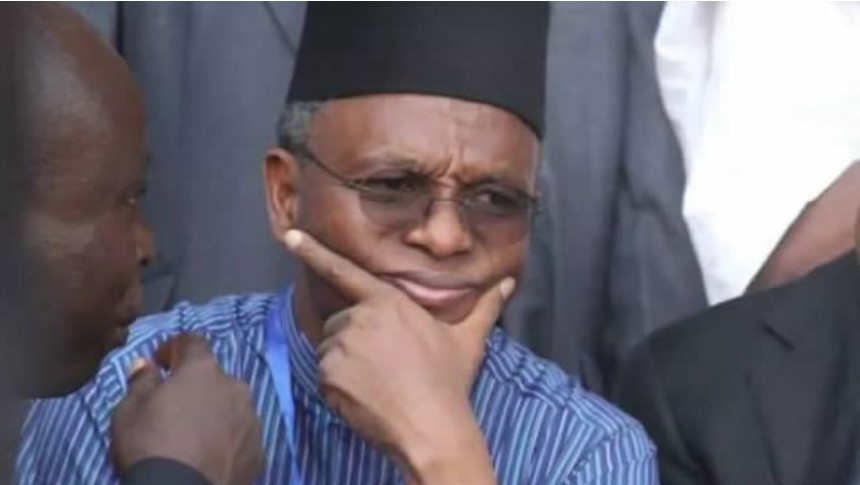Governor El-Rufai has predicted doom for Nigeria over Fuel Subsidy and Exchange Rate under APC leadership.
NewsOnline reports that Kaduna State Governor, Nasiru El-Rufai has predicted that Nigeria may end up like Sri Lanka if it does not implement reforms that tackle the issue of exchange rate alignment and removal of fuel subsidy.
The APC Governor disclosed this at the World Bank’s Nigeria Development Update and Country Economic Memorandum in Abuja attended by NewsOnline Nigeria Team.
ALSO: Inflation Pushed 5m Nigerians Into Poverty In 2022, Worse Performance- W/Bank
This online news platform recalls that the World Bank urged Nigeria to eliminate petrol subsidy and multiple exchange rates in order to chart a new growth path.
NewsOnline reports that El-Rufai stated that Nigerian Presidential Candidates are all campaigning on the removal of petrol subsidy and elimination of multiple exchange rates without politicizing it because everyone knows that failure to do so represents a clear danger to Nigeria.
He warned, “If we continue on this track, we would end up like Sri Lanka.”
State governments more affected than Federal Government
El-Rufai added that State Governments are at the receiving end more than Federal Government in terms of fiscal pressures, adding that since 2021, NNPC has not been making contributions from proceeds of oil revenues, claiming domestic oil revenues are not enough to cover petrol subsidy.
He stated the Governors had seen the problem since March 2021, and come up with solutions.
- El-Rufai said, “We agreed that by November 2022 fuel subsidies should go because we saw it would affect the solvency of many states, and affecting many states, but somehow the consensus was not implemented”
- “Most states, other than oil producing states still receiving derivation, are under pressure, except Lagos state which has a large tax base.
- “We all know and can see the impacts of the fiscal threats on Nigerians, ranging from minimum wage to earnings of Nigerians, ideally we should be multiplying wages of Nigerians but we simply can’t afford it, many states are struggling, and we are back to 2014-15 levels when the Buhari administration inherited 27 sub nationals with salary arrears.”
He added this has a major impact on States Governments, unlike the Federal Government, as states do not have access to Central Bank financing,
He said, “How can we deliver that when we are struggling to pay salaries of civil servants, most state governments are not as large as the FG, I can assure you at least half the states are struggling already and these reforms must be implemented.”
What you should know
The World Bank noted that a selected set of priority reforms are needed in Nigeria to chart a new growth path, in the areas of macroeconomic and institutional enablers as well as investment accelerators, including the elimination of petrol subsidy, as they warn it is affecting net government revenues alongside crude theft.
Other Macroeconomic enablers that they cited include: adopting a single and market-reflective exchange rate, increasing non-oil revenues by raising VAT and excise rates and strengthening tax administration, containing inflation by reducing the federal government’s recourse to CBN financing














